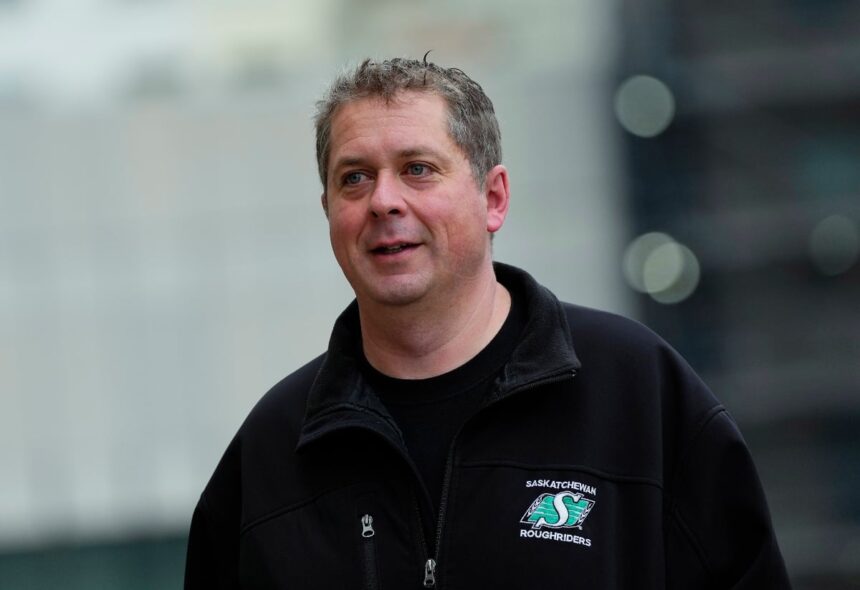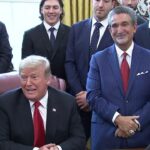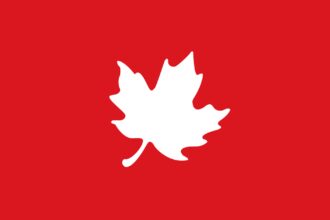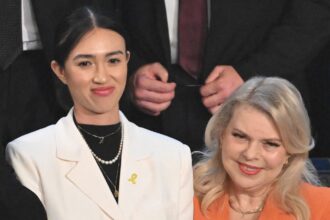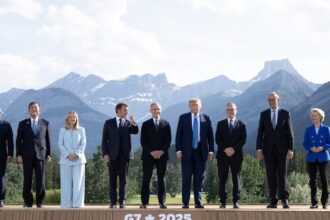In a stunning political reversal that has sent shockwaves through Ottawa’s corridors of power, former Conservative Party leader Andrew Scheer has been appointed as the new interim leader of the Official Opposition, replacing Pierre Poilievre in a move few political observers anticipated.
The transition occurred following an emergency Conservative caucus meeting held yesterday behind closed doors, where mounting internal dissatisfaction with Poilievre’s confrontational leadership style reportedly reached a breaking point. Multiple sources within the party, speaking on condition of anonymity, described a tense four-hour session that culminated in Poilievre’s resignation and Scheer’s subsequent elevation.
“The caucus felt we needed to return to a more measured approach to opposition politics,” said a senior Conservative MP familiar with the discussions. “Andrew brings stability and experience at a time when Canadians are looking for thoughtful alternatives to the current government.”
Scheer, who previously led the Conservative Party from 2017 to 2019, brings considerable parliamentary experience to the role. His return represents a significant strategic shift for a party that has struggled to expand its appeal beyond its traditional base under Poilievre’s leadership. Recent polling data from Abacus Research showed the Conservatives trailing the Liberals by seven percentage points nationally, with particularly concerning numbers in urban centers and Quebec.
Political analyst Stephanie Thompson notes this leadership change signals a potential recalibration of Conservative strategy. “Scheer represents a more traditional conservative approach that might appeal to centrist voters who were alienated by Poilievre’s rhetoric,” she explained. “However, the party risks disappointing the energized base that responded positively to Poilievre’s more combative style.”
The Prime Minister’s Office issued a brief statement acknowledging the leadership change, with the Prime Minister stating he “looks forward to working with Mr. Scheer in Parliament on issues important to Canadians.” Behind the scenes, however, Liberal strategists are reportedly reassessing their approach to the next election, recognizing that Scheer’s more measured demeanor might present different challenges.
Financial markets reacted positively to the news, with the Toronto Stock Exchange posting modest gains as analysts suggested Scheer’s more predictable approach might reduce political uncertainty. “Markets generally prefer stability and moderate politics,” noted financial analyst Robert Chen of TD Securities. “Scheer is seen as less likely to propose dramatic economic policy shifts.”
During his first press conference as interim leader, Scheer emphasized economic issues and government accountability while noticeably toning down the rhetoric that had become Poilievre’s trademark. “Canadians deserve a government focused on addressing the real challenges facing families across this country – affordability, housing, and economic growth,” Scheer stated. “We will be a responsible opposition that offers substantive alternatives rather than just criticism.”
For Conservatives, this leadership change represents a critical juncture as the party prepares for the next federal election. The decision to return to Scheer signals a strategic calculation that moderation might prove more effective than confrontation in challenging the current government.
As this political drama continues to unfold in Canada’s political landscape, the fundamental question remains: will the Conservative Party’s return to a more traditional leadership approach broaden its appeal among voters, or has it sacrificed the passionate engagement that Poilievre had cultivated among the party’s base?

